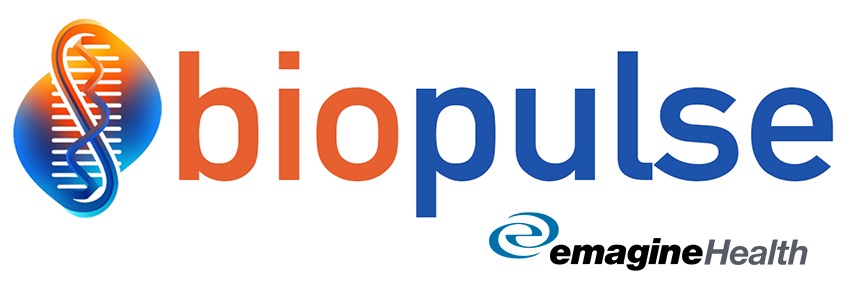biopulse July 3-7, 2023: Your Weekly Biotech and Pharma Marketing Newsletter


Welcome to biopulse, your must-have weekly newsletter dedicated to the marketing trends, strategies, and insights within the biopharmaceutical sector. Each week, we delve into the most interesting stories, examining how products are being launched, branded, and communicated in this dynamic and innovative industry. We spotlight the game-changing campaigns, marketing technologies, and regulatory impacts that are driving market shifts and redefining engagement with healthcare professionals and patients. BioPulse provides a unique blend of industry news and expert commentary, making it a crucial resource for marketing professionals navigating the biotech and pharma landscape.
July 3-7, 2023
FDA Grants Full Approval to Leqembi, a Groundbreaking Alzheimer’s Drug, Despite Controversy
The U.S. Food and Drug Administration (FDA) has granted full approval to Leqembi, an Alzheimer’s drug developed by Japanese drugmaker Eisai and Biogen. Marking a significant milestone, Leqembi is the first-ever drug approved to slow the progression of Alzheimer’s disease. The drug demonstrated a 27% slowdown in disease progression during phase 3 clinical trials. Despite the breakthrough, concerns persist over the drug’s safety, accessibility, and high annual cost of $26,500. Severe side effects such as brain swelling and hemorrhage have been reported, leading the FDA to include its strongest warning label and recommend pre-treatment genetic testing. The Centers for Medicare & Medicaid Services plan to provide coverage for Leqembi but will require physicians to gather real-world performance data. The decision follows controversy around the FDA’s accelerated approval of another Alzheimer’s drug, Aduhelm. Full story …
AI/ML Claims in Medical Device Marketing Often Misalign with FDA Clearance, Study Finds
A study in JAMA Network Open found discrepancies between marketing claims about artificial intelligence (AI) or machine learning (ML) capabilities in some medical devices and the specifications detailed in their FDA 510(k) clearance summaries. Approximately 20% of devices exhibited contentious or discrepant statements in their marketing materials. The research, conducted from November 2021 to March 2022, included a systematic review of 119 medical devices. The findings showed that while 84% of devices’ marketing aligned with their clearance summaries, about 13% made unsupported claims about AI/ML capabilities. The researchers suggested potential reasons for this might include lack of submission format for 510(k), outdated guidance documents, and increased development of AI/ML technologies. They highlighted the need for uniform guidelines and greater scrutiny to ensure consumer safety. Full story …
Congress Moves Slowly on Healthcare Legislation, but Achieves Key Wins Amidst Election Year Uncertainty
The 118th United States Congress is due for the annual August recess, after which they will have a limited timeframe before the 2024 presidential election to address health policy priorities. So far, 2023 has been slow for major healthcare legislation, aligning with the 2022 predictions due to a narrowly divided Congress. Despite no groundbreaking healthcare acts, there have been notable efforts, especially President Biden’s 2024 budget proposal to fight high drug costs, increase pandemic preparedness, and expand mental health care access. Additionally, Congress accomplished two significant feats: ending the COVID-19 public health emergency and maintaining healthcare spending during the debt ceiling negotiations. Other ongoing battles include the opioid crisis, with the House passing the HALT Fentanyl Act, and drug pricing regulations, marked by the introduction of bills targeting Pharmacy Benefit Managers. However, the outlook for the remainder of the year remains uncertain. Full story …
Cancer Moonshot Stumbles: Administration’s Policies Threaten the Pace of Cancer Innovation
In 2016, Vice President Biden launched the optimistic Cancer Moonshot, aiming to make significant strides in cancer treatment. Now, as President, he seems to be declaring a war on the cure rather than cancer. As head of PhRMA, an association representing leading biopharmaceutical research companies, I’ve observed how the Biden administration’s policies have begun to impede critical steps needed for new treatments to reach patients. The administration has undermined the foundation of scientific innovation by subverting intellectual property (IP) protections. In 2022, it agreed to waive IP protections that enabled the development of Covid-19 vaccines at the World Trade Organization ministerial conference, setting a dangerous precedent. Countries, including China and India, are now seeking to waive IP protections for Covid-19 treatments, potentially impacting treatments for cancer and other diseases, with the administration appearing unwilling to halt this global IP infringement. Full story …
Spotify Co-Founder’s Neko Health Secures $65M for AI-Backed Full-Body Health Scans
Neko Health, a health tech startup co-founded by Spotify’s Daniel Ek, has raised $65 million in a Series A funding round. The round, led by Lakestar, also saw participation from Atomico and General Catalyst. Founded in Sweden in 2018, Neko Health utilizes full-body scans along with AI software to aid early detection of various health conditions, including skin cancer, cardiovascular diseases, and diabetes. A single scan takes approximately 10 minutes and costs €250. The proceeds will be used to expand operations across Europe, fund research and development, clinical studies, and aid recruitment. Despite its high-profile nature, Neko Health has maintained a cautious media profile, declining international media interviews. The company, boasting of a team of 35 health experts and technicians, currently has a waiting list for its inaugural clinic in Stockholm. Full story …
Gene-Edited Microbes Poised to Revolutionize Health and Environment
Scientists are investigating ways to genetically edit microbes to improve human health and environmental sustainability. Researchers, including those at the Innovative Genomics Institute in Berkeley, California, which recently received $70 million in funding, are using CRISPR to modify the behavior of gut microbes. The aim is to create microbiome treatments that could improve the health of people or animals. An immediate application could be in reducing the methane emissions from cows, a significant greenhouse gas contributor. Researchers are also examining how to adjust the microbiome of infants for optimal health early on. Further research is looking at rewiring gut microbes to produce anti-inflammatory compounds. A startup called Novome is also developing microbes to tackle kidney stones and irritable bowel diseases. Despite the complexity of such work, researchers are optimistic, predicting potential human treatments within four to six years. Full story …
New Humira Biosimilars Expected to Debut with Minimal Price Discounts Amid PBM Scrutiny
Several pharmaceutical companies are set to introduce biosimilar versions of AbbVie’s Humira, a rheumatoid arthritis medication and formerly the world’s biggest-selling non-COVID prescription drug. However, experts predict minimal changes in the drug’s price, despite the new market competition from Boehringer Ingelheim, Sandoz, Organon, and Fresenius. This is due to the strategy of maintaining high prices for leverage with pharmacy benefit managers (PBMs), who negotiate insurance coverage. PBMs have been criticized for potentially favoring higher-priced drugs in negotiations. While most biosimilars will offer marginal discounts, Coherus BioSciences, partnering with Mark Cuban, is in a legal battle with AbbVie to launch its biosimilar at an 85% discount. This raises questions about whether PBMs will face pressure to cover this substantially lower-priced version. Full story …
Moderna Inks $1B Agreement with China to Develop Exclusive mRNA Medicines
Moderna has secured a $1 billion agreement with China to develop mRNA medicines for exclusive use within the country. This first-of-its-kind deal comes amid efforts by Moderna and the Chinese government to deepen their partnerships. Moderna CEO Stéphane Bancel attended the signing ceremony in Shanghai, emphasizing the company’s interest in local research and development opportunities with Chinese partners. In May, Moderna had established a biotech unit, Moderna (China) Biotech, in Shanghai with $100 million in capital. While the company expressed its intent to sell its vaccine in China, the government insisted on utilizing domestically produced vaccines. As Moderna’s only approved product in the U.S. is its mRNA vaccine, the company is looking to diversify its income base and has submitted global applications for its investigational mRNA vaccine to treat respiratory syncytial virus (RSV). Full story …
Amidst Controversy, FDA Moves to Increase Transparency and Tighten Accelerated Approvals Program
The FDA’s Accelerated Approval Program, initiated in 1992, is under scrutiny following controversies like Biogen’s Alzheimer’s drug Aduhelm, which was approved under the program despite questionable efficacy. The program has successfully brought over 200 drugs to market, with more than half of the cancer treatments approved in 2022 coming through this pathway. However, recent criticisms have urged the FDA to ensure companies quickly carry out confirmatory trials, proving the drugs’ safety and efficacy. The Office of Inspector General found that of 278 drugs approved through the program since 1992, 104 hadn’t completed confirmatory trials, with some overdue by up to 12 years. In response to these findings, the FDA is increasing transparency and tightening follow-up processes. The newly enacted Food and Drug Omnibus Reform Act of 2022 has given the FDA authority to require companies to start confirmatory trials either pre-approval or within a specified timeframe. Full story …
AstraZeneca Launches Asthma Awareness Campaigns Post Airsupra Approval
Following the FDA’s approval of its rescue inhaler, Airsupra, AstraZeneca is launching two unbranded campaigns to highlight the role of inflammation in asthma. The consumer campaign features lung-shaped straws with a message about the experience of airway tightening due to inflammation, while the healthcare professional campaign employs nautical imagery to discuss fluctuating inflammation and rescue medications. Nicole Skiljo, Executive Director of U.S. marketing at AstraZeneca, clarified that the campaigns, though aligned with the benefits of Airsupra, focus on disease education and not on promoting the brand. Airsupra is designed to manage both asthma symptoms and their underlying inflammation, distinguishing it from albuterol treatments. AstraZeneca plans to reach 150,000 healthcare providers and almost 3 million asthma patients across various platforms with this initiative in 2023. Full story …
emagineHealth is the digital-first, AI-powered agency for healthcare and life sciences. Let’s work together to maximize the results of your digital marketing initiatives.

Social Media for Healthcare & Biopharma
emagineHealth outlines the critical steps you can take now to show up on social media with a proven strategy to get your message across, reach your target audiences, and accomplish your social media goals.